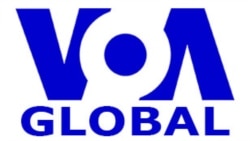In Kenya, the first of two presidential debates is scheduled to be held Monday in the capital, Nairobi ahead of the March 4 general election. The second debate will be held on February 25.
“We realized that [the] Kenyan voter doesn’t get to know the candidates very well. You don’t get to know what they stand for, what their values are and what do they really want to do for the country. So, we thought we owe it to the Kenyan voter to interrogate the candidates on an issue-based platform, and hopefully that would enable them to make informed choices at the ballot box,” said Wachira Waruru, the chairman of the presidential debate steering committee.
Six presidential candidates are expected to participate in the debate, which is the first in the East African nation’s history. They include Musalia Mudavadi (Amani coalition), Uhuru Kenyatta (Jubilee), Martha Karua (Narc-Kenya), James ole Kiyiapi (Restore and Rebuild Kenya), Peter Kenneth (Eagle Coalition) and Prime Minister Raila Odinga of the CORD party.
Organizers say they expect about 44 million viewers across the country to watch the debate, which will be broadcast live on all television and radio stations, as well as on the Internet.
Some Kenyans have expressed worry of possible violence leading up to the election. Security experts have also cautioned that there is need for measures to be implemented to prevent a repeat of the 2007-2008 post-election violence that left at least 1,300 killed and displaced hundreds of thousands from their homes.
Waruru says the candidates are expected to discuss concerns of violence ahead of the elections.
“This is part of the purpose of this whole exercise, because politicians sometimes use ethnic parameters to campaign quietly to their supporters and the average Kenyan ends up making choices based on ethnic loyalties,” said Waruru.
“But by making these politicians come to a public platform where they are interrogated in front of all Kenyans on matters beyond ethnicity, we think this is one way of eliminating ethnicity as a campaign or political tool,” he added.
Waruru says Monday’s debate will give prospective voters the opportunity to vet the candidates before next month’s vote.
He says the candidates will be questioned about the role they are willing to play to ensure the election is peaceful.
“We realized that [the] Kenyan voter doesn’t get to know the candidates very well. You don’t get to know what they stand for, what their values are and what do they really want to do for the country. So, we thought we owe it to the Kenyan voter to interrogate the candidates on an issue-based platform, and hopefully that would enable them to make informed choices at the ballot box,” said Wachira Waruru, the chairman of the presidential debate steering committee.
Six presidential candidates are expected to participate in the debate, which is the first in the East African nation’s history. They include Musalia Mudavadi (Amani coalition), Uhuru Kenyatta (Jubilee), Martha Karua (Narc-Kenya), James ole Kiyiapi (Restore and Rebuild Kenya), Peter Kenneth (Eagle Coalition) and Prime Minister Raila Odinga of the CORD party.
Organizers say they expect about 44 million viewers across the country to watch the debate, which will be broadcast live on all television and radio stations, as well as on the Internet.
Some Kenyans have expressed worry of possible violence leading up to the election. Security experts have also cautioned that there is need for measures to be implemented to prevent a repeat of the 2007-2008 post-election violence that left at least 1,300 killed and displaced hundreds of thousands from their homes.
Waruru says the candidates are expected to discuss concerns of violence ahead of the elections.
“This is part of the purpose of this whole exercise, because politicians sometimes use ethnic parameters to campaign quietly to their supporters and the average Kenyan ends up making choices based on ethnic loyalties,” said Waruru.
“But by making these politicians come to a public platform where they are interrogated in front of all Kenyans on matters beyond ethnicity, we think this is one way of eliminating ethnicity as a campaign or political tool,” he added.
Waruru says Monday’s debate will give prospective voters the opportunity to vet the candidates before next month’s vote.
He says the candidates will be questioned about the role they are willing to play to ensure the election is peaceful.






